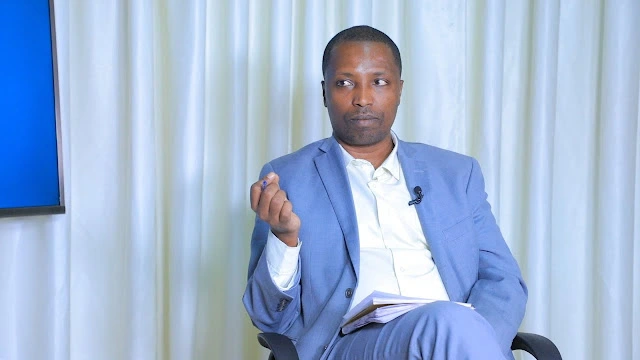Ethiopia’s Deputy Minister of Peace, Taye Dendea, has been arrested amid allegations of terrorist connections. This follows his recent dismissal from office.
The National Intelligence and Security Service Joint Command in Ethiopia claims Taye secretly collaborated with forces against peace, aiming to destabilize the nation.
Taye is accused of engaging in terrorist acts, including kidnappings.
He served as Deputy Minister for two years before his termination, which Prime Minister Abiy Ahmed announced without stating reasons.
Taye, on Facebook, linked his firing to his stance on ending Ethiopia’s civil war and advocating for peace. He criticized Prime Minister Ahmed, accusing him of brutality.

Last week, Taye held the government responsible for failed peace talks with the Oromo Liberation Army (OLA).
These talks in Tanzania aimed to resolve Ethiopian conflicts. Intelligence reports suggest Taye had contacts with rebel groups, including the OLA.
Since Abiy Ahmed’s rise to power in 2018, he has freed thousands of political prisoners.
Despite this, human rights groups accuse him of suppressing dissent and arresting war critics.
Authorities recently detained 97 individuals in Addis Ababa, suspected of planning attacks during a protest.
This protest called for ending conflicts in Ethiopia’s Amhara and Oromia regions.
Background Ethiopian Deputy Minister
The failed peace talks have led to increased armed clashes in Oromia. In October, clashes between the Armed Forces and OLA resulted in numerous civilian deaths.
Fighting continues in Amhara, with the federal army battling the local Fano militia. Drone attacks in the area are on the rise.
Ethiopia’s current situation is shaped by its history of ethnic and political diversity. Abiy Ahmed’s efforts to unite these groups have been both lauded and criticized.
Ethiopia’s ongoing conflicts highlight the country’s deep-seated challenges.
The international community plays a crucial role in supporting dialogue and aid while respecting Ethiopia’s sovereignty.
Understanding Ethiopia’s current state requires acknowledging its complex historical context.

